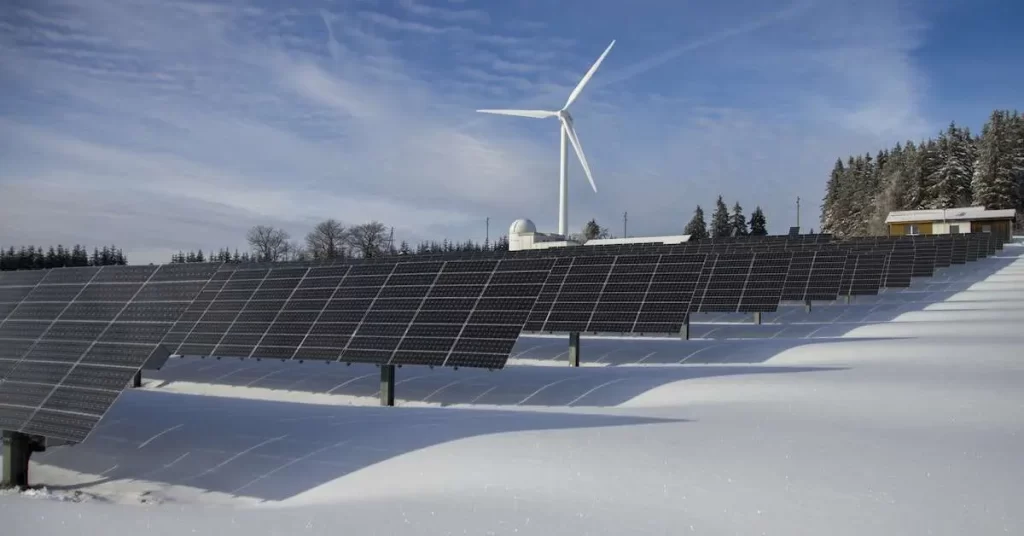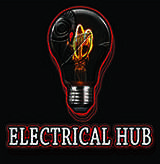Hybrid Solar System: Best Tips to Select Solar System
Read More About
Video Explanation
Introduction
Are you thinking the same that a hybrid solar system is best in all three types of solar systems? If you’re thinking about installing a solar system at your house, it can be a little difficult to know where to start.

There are different types of systems available and some options may be better than others. It mostly depends on your location and electricity usage habits. This article will cover the most common types of solar systems and offer tips on how to choose the best one for your needs.
What is the Solar System
We also call a solar system a photovoltaic (PV) system. It normally has solar panels installed on your rooftop tilting towards the sun. These PV Modules are normally tightened or screwed on the PV structure depending upon the requirement of your rooftop. These modules generate Direct Current (DC) which then converts into alternating current. This conversion takes place at the same voltage level by solar PV inverters. Thus, we get electricity from our sockets or plugs.
How solar panel works
Solar photo-voltaic modules contain a few individual sun-oriented solar cells which are framed in layers of silicon (Si), phosphorous(P), and boron(B). Phosphorous and Boron act as impurities that make the bond with Silicon to make the charges flow from one end to the other. Thus, these charges are cumulated on a collector layer which collects them and makes them flow out of the module DC compartment through reverse polarity fuses.
We call this process of charge generation from direct sunlight, the photovoltaic effect and that’s why we call this technology “photo-voltaic technology”. So enough for the introduction of this solar energy now; hopefully we need to dig out some more detail regarding its use in our daily life & national economy.
Benefits of installing solar panels
Well, there are numerous benefits if we talk about energy and climate change. Being renewable energy, its main advantage is that its clean energy and there are no emissions. We can classify the hybrid solar system as one of the best solar systems among the three types. Let’s see which benefits in general we get from the solar system.
- Renewable Energy and Clean Power
- No worse impact on climate and the environment
- One time investment and you can have energy for up to 25 years
- Easy installations of solar systems
In a hybrid solar system, you can store energy as well as export energy to the utility.
Easy operation and maintenance
You can export surplus energy to the utility/Grid and get paid by the distribution company.
Types of the solar system: On Grid, Off Grid, and Hybrid Solar System.
There are three types of solar energy systems available in the market, which have been enlisted below:
- Solar on-Grid energy system
- Solar off-Grid energy system
- Solar hybrid energy system
There are four different conditions of synchronization for any type of solar system which have been enlisted below.
- Voltage Level
- Frequency level
- Phase angle
- Phase angle difference
Whenever synchronization happens, these conditions must satisfy. After that system gives AC current on output at the same grid voltages. There is a lot of difference when we consider single-phase and three-phase systems. To know more about three-phase system advantages and different configurations click here to read…
Every system has some pros and cons depending on your requirements and needs. First thing first, you need to know your system capacity and amperes requirement. you can use our free online calculators to calculate the required amperes and you can proceed to system design. Let’s have a look in detail.
Solar on-Grid Energy System
This system functions along with the grid. Whenever the grid supply fails, this system automatically shuts itself off. This system is mainly installed where the preference is to minimize energy metering bills. This can export whenever the grid is available and the internal running load of the house is less than the output of this system.
On-grid inverters use Grid Anti-Islanding protection which we see normally enabled by default in almost every unit. Click to Check out how this Anti-Islanding protection works. This protection is also available in the case of the hybrid solar system.
Solar off-Grid energy system
This solar energy system is almost the same but includes batteries. This system functionality is a little different than the previously described one. This is installed at remote locations where grid supply is not available/ rarely available. Therefore, we use an off-grid solar system as a reciprocal to the local grid/utility. These off-grid systems mostly employ lithium-ion battery now a days to enhance the storage capacity and performance of the solar system.
Off-grid solar systems are a great option for those who want to live independently from the electrical grid or have limited access to electricity. These systems typically consist of solar panels, a charge controller, an inverter, and batteries.
Lithium-ion batteries are a popular choice for off-grid solar systems because of their high energy density and long cycle life. They are also more lightweight and compact compared to other battery types, making them easier to install and maintain.
However, it is important to note that lithium-ion batteries can be more expensive compared to other types of batteries. They also require specific charging and discharging protocols to ensure their longevity and prevent damage or overheating. It is important to consult with a professional to determine if a lithium-ion battery is the best fit for your specific off-grid solar system needs.
Solar Hybrid energy system
The hybrid solar system is a combination of both above systems. Where internal consumption is less than the running load of the premises, we use the hybrid solar system at that location. The hybrid solar system can export to the utility/grid. So, we can use both systems in one unit and this is the plus point for the hybrid solar system.
Hybrid solar systems are designed to combine the benefits of both on-grid and off-grid solar systems. These systems typically include a combination of solar panels, a battery storage system, and a grid connection. The battery storage system is used to store excess solar energy generated during the day, which can be used during periods of low solar energy production or during power outages.
Lithium-ion batteries are a popular choice for hybrid solar systems because of their high energy density, long cycle life, and ability to discharge and charge quickly. They are also more efficient compared to other battery types, allowing for more efficient energy storage and usage.
By combining solar panels and lithium-ion batteries, hybrid solar systems can provide a reliable and efficient source of electricity while reducing dependence on the electrical grid. They can also help reduce energy costs and minimize carbon emissions. However, it is important to note that hybrid solar systems can be more complex to install and maintain compared to traditional on-grid or off-grid solar systems, and it is important to consult with a professional to ensure the system is designed and installed correctly.
Five Tips while selecting solar systems
There are always different quality materials available in the market. Based on your energy needs and capital cost; you should carefully select your solar system design. In this regard, we have some tips if you are planning to install a solar system for your home/office.
Understand the requirement first; which type of system do you need on your rooftop? As we described above, there are three types of systems.
Check out the installation space for the system. As we stated before, PV modules are mounted on rooftops. So, there should be sufficient space available for installation. Normally a PV module size is 2 meters x 1 meter (Length x Width). You can check the area available on your rooftop.
How much can you spend? This question carries a lot of answers in it. By watching your energy bills, you can easily estimate the system requirement. Then the estimated expense depends on the market research and the area of installation.
Quality comes in priority in these 5 tips. This is a long-term investment and you should not compromise on quality. Only a degradation of 0.05% each year is allowed. But if degradation is larger than this, then quality comes into question.
Install the system professionally. If you have some service providers then it’s preferred to get the services. If the installation is durable then it can last longer and perform efficiently.
Things to Consider Before Installing Solar Panels at Home
You can follow the above tips before installing a system on your rooftop. Further, you also need to consider the following.
The design of a solar system is a very important step. Depending upon system requirements, get the system design from some professional.
Design of backup system is also important as the cost of batteries is very large. Selection of Lithium ion batteries incurs more cost but gives reliability in design.
Lithium ion batteries have larger number of cycles and they tend to perform for longer.
The modules’ shading effect needs to be considered before installation. Calculate the shading distance by using the formulas. You can follow our solar Project design course in our coming blog posts.
Tilt angle measurement is necessary before proceeding with the installation.
PV modules are installed at true south, so calculate the true south first.
Types of Installation Processes
There are different types of installation that you can follow according to your need.
Rooftop installation
- Ground mounted systems
- Flush mounted systems
- Canopy parking installations
- Flat roof installations
Duties & Taxes
Duties and taxes on solar systems are normally waived off because of renewable energy systems. You can check your country’s renewable policy towards duties and taxes. As the off-grid and the hybrid solar system involve all three components so the taxes on the batteries will also include. Have a Great Day.
Subscribe to our Newsletter “Electrical Insights Daily” to get the latest updates in Electrical Engineering. You can also Follow us LinkedIn to see our latest posts.

This is very informative. Keep it up. It helps us a lot in the installation of solar panels. Thanks a lot.
I found it Very helpful…. Especially in the present conditions of energy fall… Thumbs up for your work.